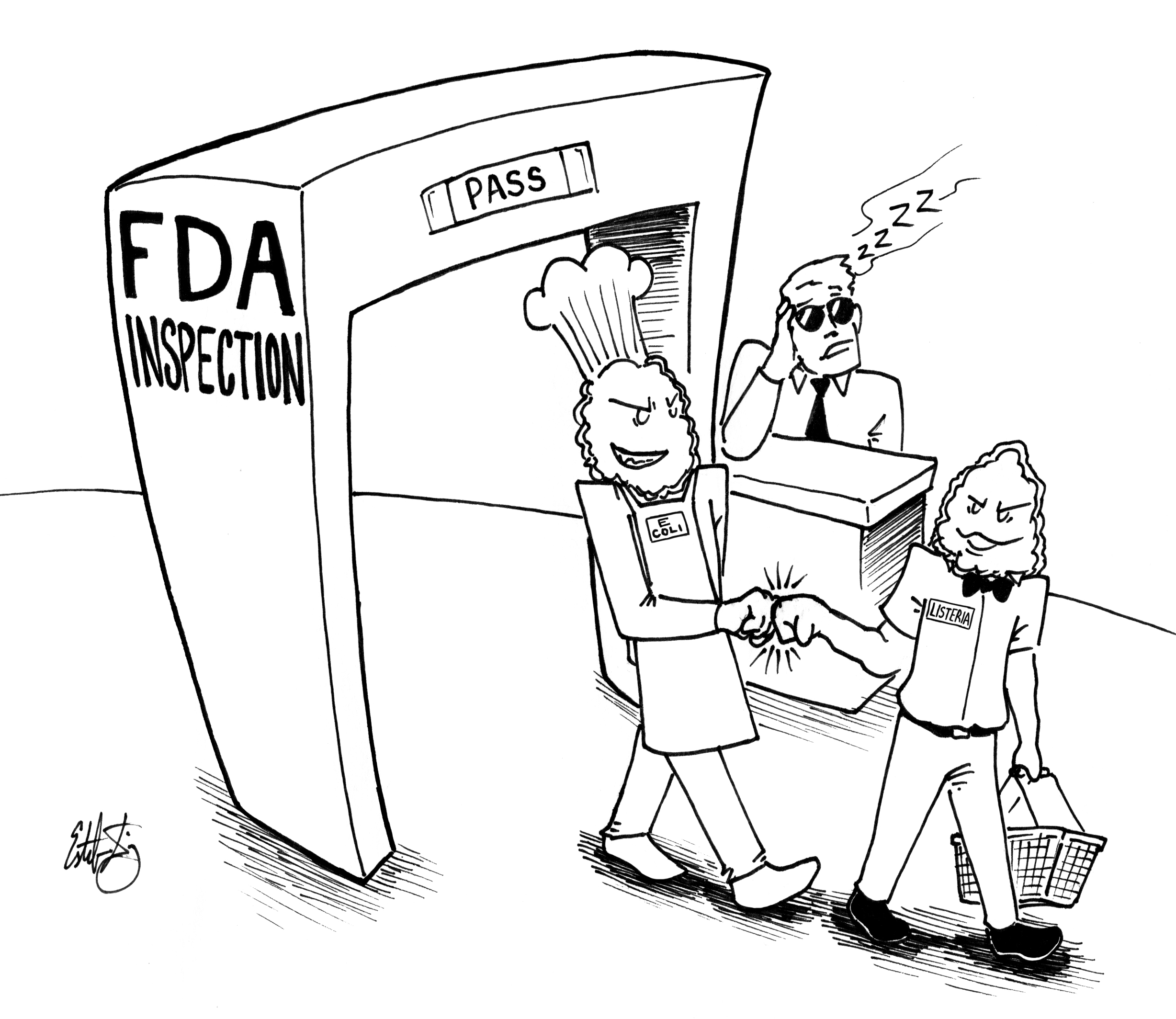In this blog post, I would like to talk about the Food
Safety Modernization Act of 2010 which supposedly revamped the U.S. Food
and Drug Administration. To start off, I want to share a story with you. In 2012,
6 year old Owen Carrignan complained about a stomachache after getting home
from a friend’s house. Less than a week later, Owen was dead from E. coli. To
make matters worse, State Health officials could never find out what
contaminated food killed Owen and another person, and eventually closed the
investigation.
I understand that we cannot make the system perfect, but
we can always do better. What makes this story truly tragic is that it happened
after the Food Safety Modernization Act was passed which supposedly gave the
FDA more powers in order to better protect us, and we still have more deaths than
any other developed country. The CDC estimates that 1 in 6 Americans get sick,
128,000 are hospitalized, and 3000 die of food borne diseases. When compared
the France, The United Kingdom, and Australia, which have less than 500 deaths,
it seems a little high.

For example, in 2011 a Listeria outbreak, caused by
infected Cantaloupes grown in Colorado, killed 33 people and sickened approximately
150 people. Now around four years later, after the changes have been
implemented, another Listeria outbreak has occurred, caused by infected Blue
Bell products. As of April 21, 2015 ten people have been infected and 3 deaths
have occurred. The FDA is not able to follow through on all the new procedures
laid out in the Act implemented in 2010, because it has to procure its funding
through Congress. And, Congress is lobbied by the Food industry, which has some
motivation for keeping the FDA weaker than it should be.
Congress has provided less than half of the estimated 580
million dollars needed for the FDA to implement the Food Safety Modernization
Act. The FDA has requested $263 million in their last budget request, with $229
million coming from user fees on food companies. The FDA uses user fees to fund
a number of its other programs. Congress, though, has rejected the proposed
budget, because of food industry lobbying. Though funding is not the only
problem the FDA is facing. The FDA suffers from a condition of under staffing
and under training, but those problems could be fixed if the FDA had more money
to spend.
And, to add a nice confusing bureaucratic layer to our
food system, the Food Safety Modernization Act, even if the FDA gets funding
from Congress, does not apply to 20% of our food supply. Most meats and poultry
products are regulated and inspected by the US Department of Agriculture. Slaughterhouses
are required to have a USDA inspector, but those inspectors do not have the
power to shut down a slaughterhouse or issue a recall if there is a threat.

In conclusion, the Food Safety Modernization Act has the
potential to enact sweeping changes within our food industry, prevent many
future deaths, and saves us billions of dollars, but that might be jeopardized
because of lack of funding in the present and food industry lobbying. The Act
has already provided many benefits. For example, the FDA now has the power to
issue recalls on contaminated foods, which is a power it did not have before
2010. All it would take to make the complete adoption of all the changes to the
FDA in the Food Safety Modernization Act would be for the Food industry to
start paying user fees, and I think $230 million split across several food
corporations is a small price for them to pay in order to protect their
consumers.



